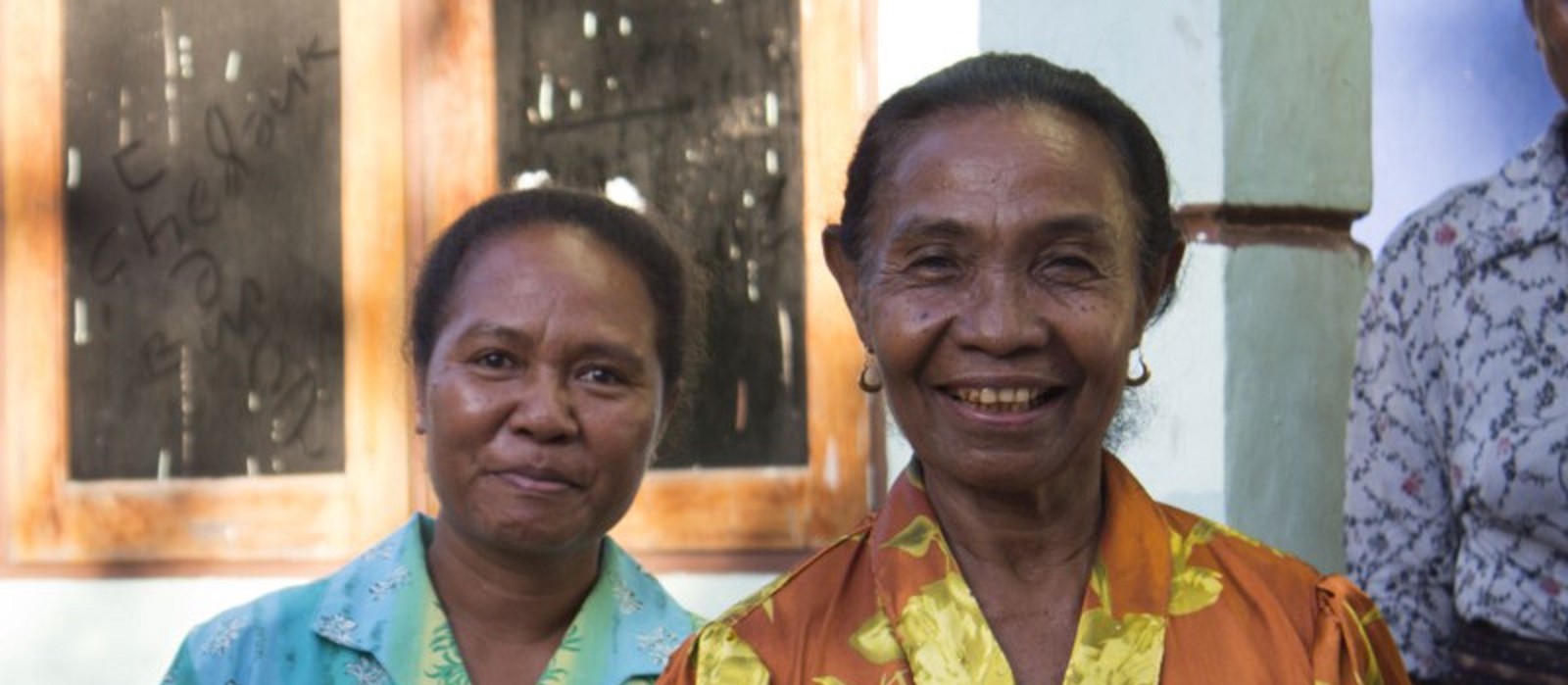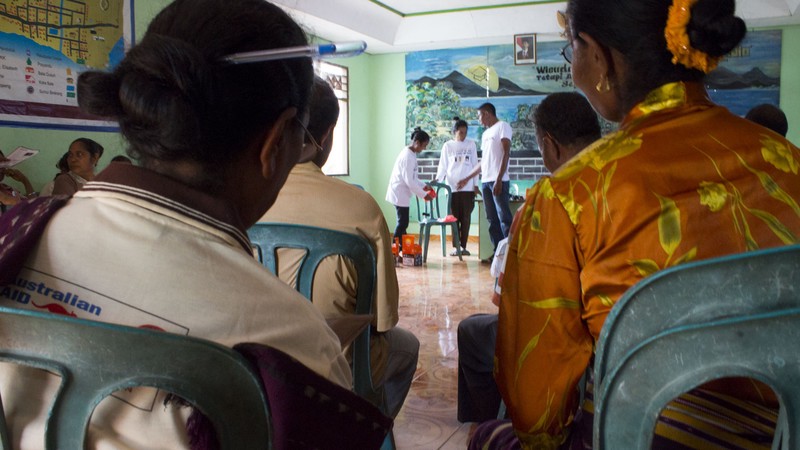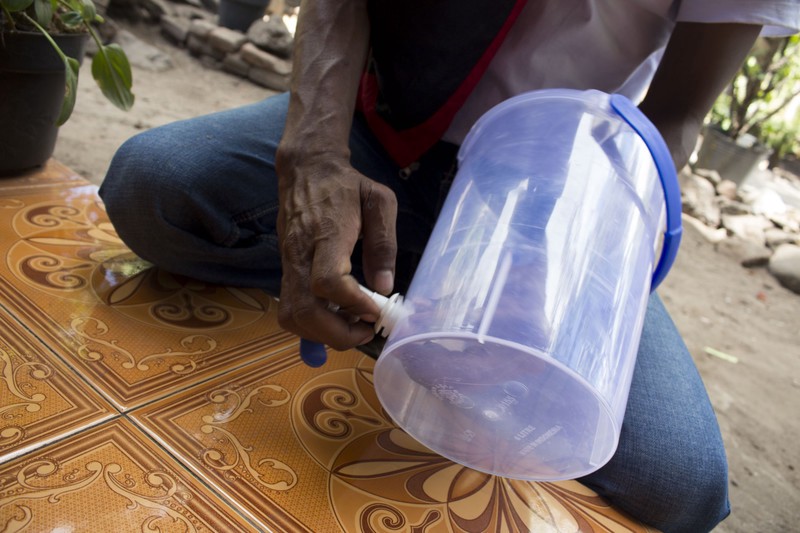

At a tech fair in Lembata, a volcano-sprinkled island near the eastern tip of Flores, Indonesia, 62-year-old subsistence farmer Daprosa and her friends Maria (54 years old) and Yuliana (also 54 years old) are checking out a water filter. It’s a simple $15 contraption, made of two plastic tanks with a ceramic-and-silver dome connecting them. The top tank is filled with river water and left overnight, with harmful chemicals and parasites removed as it trickles through. These women aren’t the only ones wondering about its success; local officials are interested, too–they want to know whether a giant version could be used to create a centralized water supply for villages.
The farmers are asking questions about some of the other products on display as well, ranging from how much longer wood lasts in a biomass stove, to the risk of chemicals leeching into the water from the plastic filter system. Ansa, a local product manager for Kopernik, an NGO that balances a philanthropic and business approach to distributing technology in Indonesia, deftly handles each question with specs and certificates ready on hand.
Kopernik’s approach to development differs from many other NGOs. “We want to change the way that people look at development problems and how these problems can be addressed,” explained Ewa Wojkowska, who co-founded the organization with her ex-UN colleague Toshi Nakamura five years ago. “So, lofty ideals!”
The pair, who met while working for the United Nations Development Programme in Indonesia, saw how common, but easily solvable problems–like health-endangering cooking methods and access to electricity and safe water–were holding back the communities they served.
But rather than “pushing” ideas that look good to an outsider, they tried a different approach: pitching new technologies to the people who will ultimately use them. Wojkowska and Nakamura make communities part of the development process–consulting them on the precise problems that need solving and what effective solutions could look like–so that they end up with tech they actually want.
“We wanted to give people choice,” explained Wojkowska. “The chance to say, right: This is going to help me!”

Large-scale aid projects often forget to focus on what recipients really want in favor of work that reflects the ideologies and assumptions of those holding the purse strings. Meanwhile, in-kind donations from well-meaning but ill-informed Westerners can lead to inappropriate (or even offensive) items being shipped and distributed at costs that dwarf the price of the product itself–placing a hefty financial and infrastructural burden on the people who have to work out how to receive them, and even potentially suppressing the wages of local workers by undercutting their own products.
Kopernik seeks out simple, cheap-to-make solutions to widespread problems, like solar-powered lights and kerosene-free cookers. It then forms partnerships with grassroots groups that can transport and demonstrate product samples to “last mile” communities, or ones too remote or inaccessible for most aid programs to reach.
The NGO doesn’t give technology away for free; users buy the products, albeit at cost price, in manageable installments. But Wojkowska believes that having people invest in an idea is the best indication of whether it’s making a genuine impact. People are unlikely to refuse free equipment, even if it’s left to rot.

Contrary to the “it’s better than nothing” attitude of many donors, even the most underserved communities have quality and safety concerns about the products they use, which may only get voiced when they become potential clients–rather than passive recipients of charity.
“One thing that we’re often asked about the cook stove is, “‘Is it certified by the Indonesian Standards Board?’ It’s fantastic. People are really well informed, actually,” said Wojkowska.
Back at the fair, Daprosa (speaking through an interpreter) explained that clean water is hard to obtain on an island where rivers are tainted with volcanic sulphur and the rain stops for five months each year. Drinking water, she said, is a major expense, and she could use the savings from not having to buy it to send her children to school. She’d like to see them grow up with a chance at inventing these kinds of technologies for themselves.
So far, Kopernik has served more than 269,000 people, said Wojkowska–a success she attributes to the organization’s design-led approach. “Design is really critical, and I didn’t realize that,” she said. “The technologies that really excited me initially were technologies that the communities we introduced them to weren’t interested in at all!”


How We Get To Next was a magazine that explored the future of science, technology, and culture from 2014 to 2019. This article is part of our Design & Innovation section, which looks at new devices, concepts, and inventions that are changing our world. Click the logo to read more.
